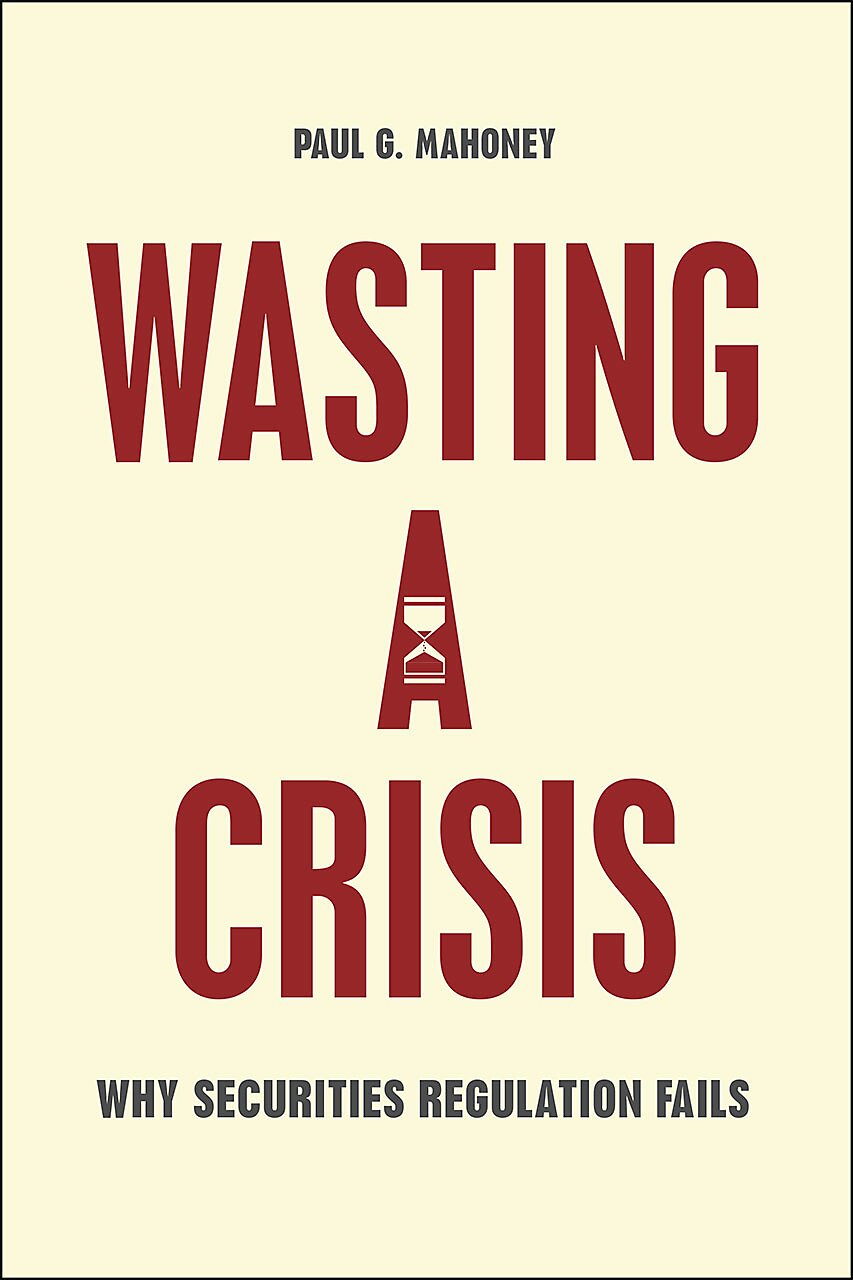But is that story true? Paul Mahoney, Dean of the University of Virginia School of Law, has dug deeply into this narrative in his recent book, Wasting a Crisis: Why Securities Regulation Fails. The results of his research and analysis reveal a mismatch between the received wisdom about the causes of the Depression and the actual data, and a pattern of crisis-narrative-regulation that has persisted through the recent Great Recession and the implementation of Dodd-Frank.
Dean Mahoney recently shared his thoughts on these and related issues at a book forum at the Cato Institute. Joining us was also banking regulation scholar Heidi Schooner of the Columbus School of Law at the Catholic University of America, leading to an interesting discussion of the externalities of bank failures and the application of banking regulation principles to non-bank entities.
Watch the video of the event:


